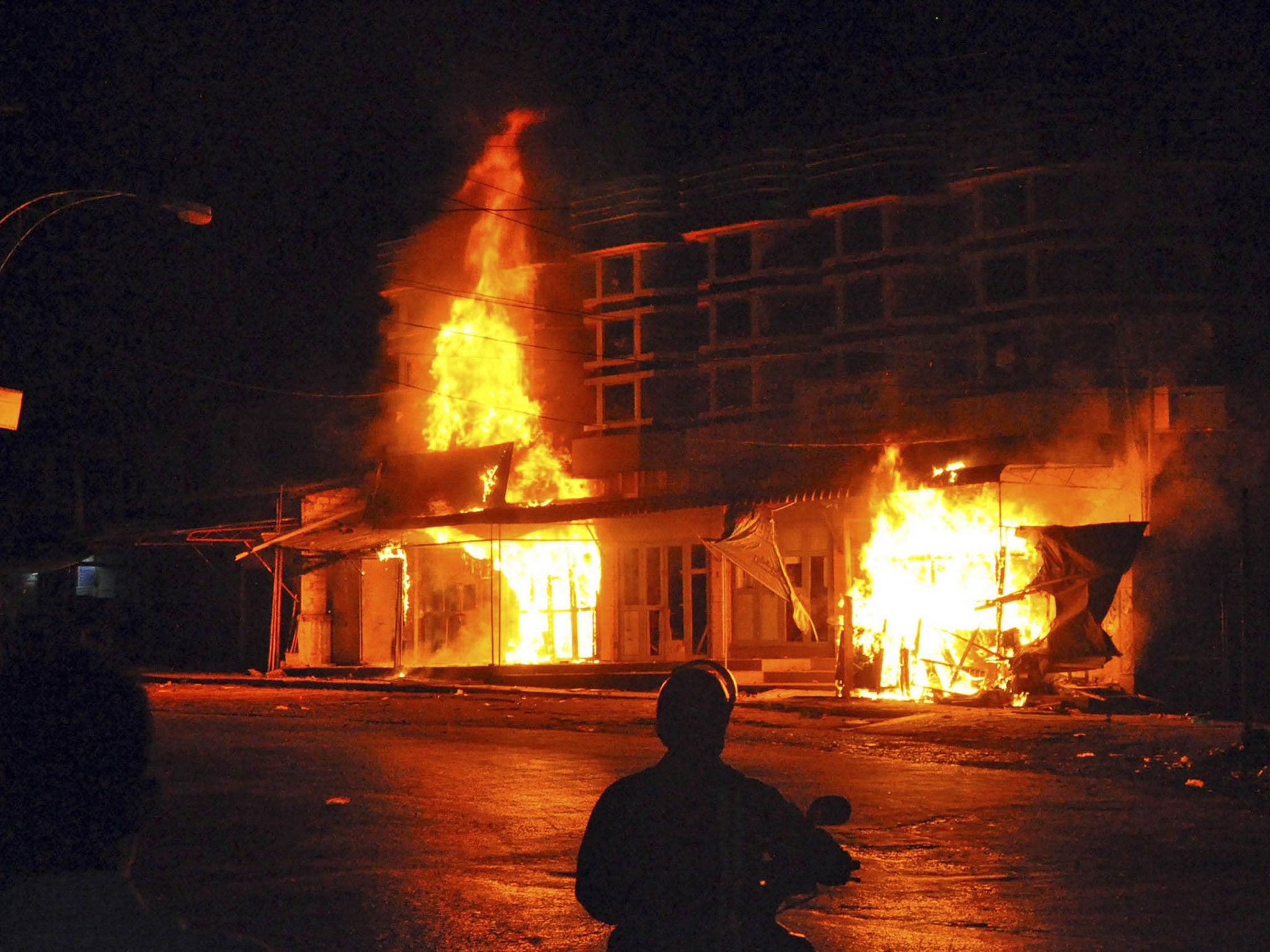1,000-strong Burmese Buddhist mob burns Muslim homes and shops
35 houses and 12 shops destroyed before calm was restored

Your support helps us to tell the story
From reproductive rights to climate change to Big Tech, The Independent is on the ground when the story is developing. Whether it's investigating the financials of Elon Musk's pro-Trump PAC or producing our latest documentary, 'The A Word', which shines a light on the American women fighting for reproductive rights, we know how important it is to parse out the facts from the messaging.
At such a critical moment in US history, we need reporters on the ground. Your donation allows us to keep sending journalists to speak to both sides of the story.
The Independent is trusted by Americans across the entire political spectrum. And unlike many other quality news outlets, we choose not to lock Americans out of our reporting and analysis with paywalls. We believe quality journalism should be available to everyone, paid for by those who can afford it.
Your support makes all the difference.Fresh sectarian violence struck north-western Burma yesterday when a 1,000-strong Buddhist mob burned down dozens of Muslim homes and shops following rumours that a young woman had been sexually assaulted by a Muslim man, the police said.
A crowd surrounded the police station late on Saturday and then went on an hours-long rampage after authorities refused to hand over the assault suspect, a police officer from the area told the Associated Press.
About 35 houses and 12 shops – most belonging to Muslims – were destroyed before calm was restored, he said. There were no reported injuries.
The radical monk Ashin Wirathu, whose anti-Muslim rhetoric has placed him at the centre of rising religious violence in the predominantly Buddhist nation, posted news of the riot in the outskirts of the town of Kanbalu on his Facebook page.
Burma has been grappling with sectarian violence since the country’s military rulers handed over power to a nominally civilian government in 2011.
The unrest – which has killed more than 250 people and left 140,000 others displaced – began last year in the western state of Rakhine, where Buddhists accuse the Rohingya Muslim community of illegally entering the country and encroaching on their land.
The violence, on a smaller scale but still deadly, spread earlier this year to other parts of the country, fuelling deep-seeded prejudice against the Islamic minority and threatening this country’s fragile transition to democracy.
Almost all of the victims have been Muslims, often attacked as security forces stood by.
Myint Naing, an opposition politician who represents constituents in Kanbalu, was outraged by the latest violence. He said Muslims and Buddhists have lived side by side in the area for many years.
“There is a mosque in almost every village in our township and we live a peaceful co-existence,” he said as he headed to the scene, adding that at least one mosque was burnt down in the violence.
“I cannot understand why the authorities were unable to control the crowd when it originally started,” he said.
Details about the riot were still being collected yesterday. The local Daily Eleven newspaper, which had a reporter at the scene, said 1,000 people were involved in the violence.
AP
Join our commenting forum
Join thought-provoking conversations, follow other Independent readers and see their replies
Comments